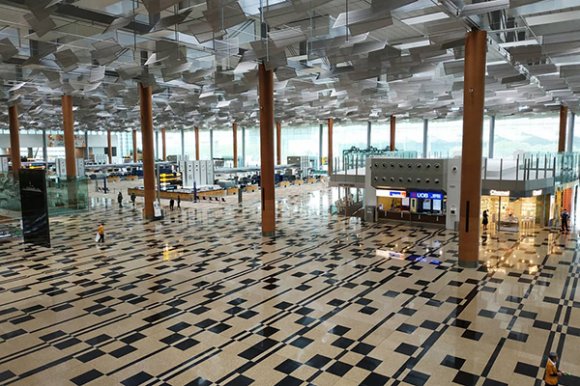Singapore’s Changi Airport consolidating terminal ops amid demand drop

Low demand gives the airport the opportunity to move ahead with upgrade work ahead of schedule.
Changi Airport Group (CAG) will suspend operations at Changi Airport (SIN) Terminal 2 for 18 months starting May 1, a move made in response to the demand drop related to the COVID-19 pandemic that will have the added benefit of allowing the airport to accelerate infrastructure upgrades.
Similarly, with only a handful of flights left at the Singapore hub’s new Terminal 4, CAG will consider temporarily closing that terminal too should the last airlines there choose to suspend flight operations or adjust their schedules.
CAG said the consolidation will enable it and its partners to save on running costs and optimize resources across the airport to better match low travel demand and airlines’ reduced flight operations.
Terminal 2’s current expansion project is slated for a 2024 completion, but the closure allows the project completion to be brought forward by up to a year. Carriers using the terminal include Etihad Airways, Lufthansa, Malaysia Airlines and United Airlines.
The consolidation means that almost all flights will operate from SIN’s Terminal 1 and Terminal 3 for the foreseeable future. The former was recently expanded in early 2019 to handle three million more passengers annually.
The COVID-19 pandemic has led to SIN passenger volumes nosediving by at least 90% year-over-year. CAG has waived rentals for tenants at Terminal 4 for two months in response to the low traffic there. This correspondent made a trip to Changi on April 6 and observed almost no passenger movement at the terminals, with airport and support staff on hand.
“While the scale of our operations will be reduced in the near term, SIN remains open to serve cargo and passenger flights that continue to operate,” CAG executive VP of airport management Tan Lye Teck said.
“Even as our airport capacity is being optimized for the current situation, we will have the flexibility and we stand ready to ramp up operations quickly once the recovery takes place.”
